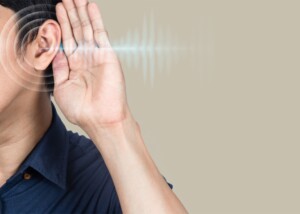Do you suffer from ear, neck or head pain that many doctors can’t seem to diagnose?
There’s a sly condition often missed by doctors that just might be causing your suffering.
In addition to any of the following – ear and neck pain or headaches – do you also have unexplained shoulder pain, upper back pain and tinnitus (“ringing” in an ear)?
“Temporomandibular joint disorder (TMD) is elusive,” says Dr. Charles Sutera, a TMJ specialist and founder of Aesthetic Smile Reconstruction in Waltham, MA.
”Patients are usually aware that jaw fatigue, clicking, popping, jaw locking, teeth clenching and grinding are jaw-related,” says Dr. Sutera.
“But here’s where it gets tricky: TMJ disorder can also be the source of ear pain, tinnitus, headaches and neck pain.
“It can interrupt people’s sleep and is also linked to psychological stress and even linked to depression.
“Because there’s a slew of seemingly unrelated symptoms that intertwine to form TMJ disorder, the condition is often misdiagnosed and misunderstood, with sufferers seeking help from a variety of specialists.
“People see neurologists for headaches and ENT’s for ear pain.
“They see dentists for jaw soreness, psychologists for stress, and physical therapists for back and shoulder pain.
“Often there are links between various symptoms of the head and neck.
“The scariest thing is people suffer for much longer than they should.
“The best results are when treatment is aligned by a TMJ specialist or a team of healthcare providers who are not working separately, but in coordination.”
Symptoms that Lead to a Misdiagnosis

Freepik.com
“The symptoms that people would never assume are caused by TMJ disorder are symptoms like ear pain, tinnitus and headaches,” says Dr. Sutera.
“When your ear hurts, it makes sense for you to first seek an ear specialist, and when you have a headache, you think it’s their head.
“Sometimes that’s true, and it’s a good place to start, but often the TMJ and the surrounding muscles can create ear problems and headaches.”
A Dangerous Misdiagnosis
What about the reverse? Can a life threatening condition be misdiagnosed as TMJ disorder?
Dr. Sutera explains, “It’s possible but rare for TMJ-like symptoms to be caused by more severe issues like a tumor or aneurysm.
“The best advice is that if you are having persistent symptoms for more than a week or two that are worsening, you should consult with your primary care physician or dentist.
“That’s usually a good place to start. They will help you to rule out if there is something more serious going on, or if you should seek a TMJ disorder specialist.”
Request an MRI
Your dentist who’s also experienced with treating TMJ disorder may routinely arrange to have patients undergo an MRI – just to be sure that nothing serious inside the head is causing the symptoms.
For example, ear pain and tinnitus can also be caused by a benign inner-ear canal tumor called acoustic neuroma – which an MRI will spot.
If you’ve already been undergoing TMD treatment but it’s not working, make sure you get an MRI if this procedure has not been done.
It’s also possible for jaw pain – which can make many people automatically assume it’s TMJ-related – to be caused by a tumor.
Though this is exceedingly rare, it’s worth mentioning to cover all bases.
There is the case of a woman who was experiencing temple and jaw pain and was diagnosed with TMJ disorder. The treatment didn’t work.
An MRI revealed a mass on the base of her tongue with possible spread to the brain.
Further investigation resulted in a diagnosis of metastatic melanoma in this 75-year-old patient (published in the Journal of the American Dental Association).
Again, this is quite rare, but you should trust your gut and request an MRI if treatment for a diagnosed TMD is not effective.
With that all said, it’s important to keep things in perspective.
While many benign (non-life threatening) conditions can mimic TMJ disorder (sinus issues, a pinched nerve, migraine disorder), TMJ disorder can also mimic many benign conditions.
What TMJ disorder mimics is usually benign; what mimics TMJ disorder is usually benign.
 Dr. Sutera, FAGD, is a board certified dental anesthesiologist, aesthetic smile specialist and TMJ expert. Dr. Sutera completed his implant training at the Whitecap Surgical Center in Salt Lake City, extensive periodontal training at the GIDE Institute, and has trained in 3rd molar surgery.
Dr. Sutera, FAGD, is a board certified dental anesthesiologist, aesthetic smile specialist and TMJ expert. Dr. Sutera completed his implant training at the Whitecap Surgical Center in Salt Lake City, extensive periodontal training at the GIDE Institute, and has trained in 3rd molar surgery.
 Lorra Garrick has been covering medical, fitness and cybersecurity topics for many years, having written thousands of articles for print magazines and websites, including as a ghostwriter. She’s also a former ACE-certified personal trainer.
Lorra Garrick has been covering medical, fitness and cybersecurity topics for many years, having written thousands of articles for print magazines and websites, including as a ghostwriter. She’s also a former ACE-certified personal trainer.
.



























